Small businesses can greatly benefit from asset management software for small business by improving efficiency and accuracy in managing their physical assets. This software provides the ability to track all acquisition, location, maintenance and depreciation actions completely automatically, reducing the human labour involved. Real time visibility into asset utilisation, and performance gives small businesses insight in resource allocation and spending on future investments.
How Does Fixed Asset Management Software Improve Efficiency?
Fixed asset management software automates a vast range of processes that occur with the acquisition and final disposal of a company’s assets. This saves the day in cases where you need to track the location of your assets, the time for maintenance or the depreciation of your asset; in this way, tasks like these are simplified through the reduction of the need for manual data entry, as well as the elimination of error.
Fixed asset management software is equally important for small businesses to do financial planning and in regulatory compliance. It gives business owners a way to track asset depreciation properly, gaining better understanding of its financial standings and preparing tax easily. Asset data provides real time data on a company’s assets so that small businesses can make rational decisions on whether to purchase new assets or allow others to dispose of them efficiently.
How Can Asset Tracking Systems Reduce Costs for Small Businesses?
For smaller businesses, asset tracking systems can help to eliminate a large portion of these costs by improving inventory management accuracy and related asset utilisation. Through technologies such as barcodes, RFID, or GPS location tracking businesses can keep track of their assets in real time minimising the risk of unexpected misplacement or theft.
Additionally, asset tracking systems allow small businesses to save money by running maintenance schedules more effectively and for longer as well. It allows the system to automatically schedule preventive maintenance, and save repair costs and downtimes by not only doing this, but also preventing breakdowns from occurring in the first place.
How Can Fixed Asset Tracking Systems Enhance Compliance and Reporting?
The key benefit from a fixed asset tracking system to assist with compliance and reporting is the provision of accurate, real time data on the location, status and condition of any assets. By doing this, businesses can keep up to date with their records which are essential for utilising reported taxes for paying the tax under the tax law required during financial audit, tax reporting and other industry regulatory requirements.
Furthermore, a fixed asset tracking system facilitates reporting by condensing all asset related information into a centralised system. Only a few clicks are needed to generate your own custom reports on asset usage, depreciation, maintenance history, etc. By simplifying the reporting process to internal stakeholders, auditors and regulatory bodies, this eliminates the administrative burden and eliminates manual errors inherent in traditional asset management.
Frequently Asked Questions
Q.1 What is an asset tracking platform, and how does it function?
A. Software that tracks and controls physical assets with technologies such as barcodes or RFID, is referred to as an asset tracking platform. It keeps record of details of the asset, location, maintenance history and usage to effectively track the asset.
Q.2 What are the primary functions of asset management software in India?
A. The most important role of asset management software in India is asset tracking, inventory and their management, maintenance scheduling, calculating depreciations, compliance management, reporting and analytics and integration with the financial systems.
